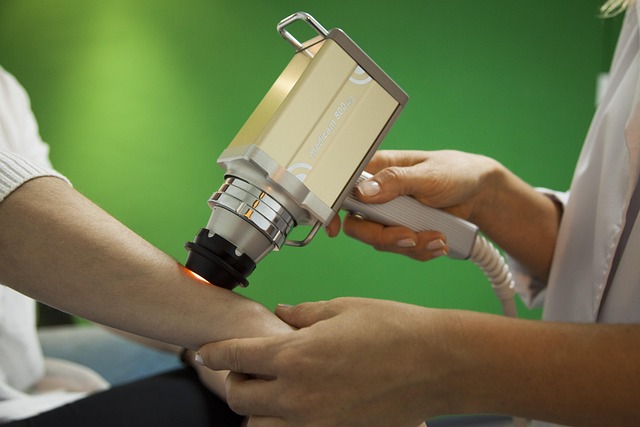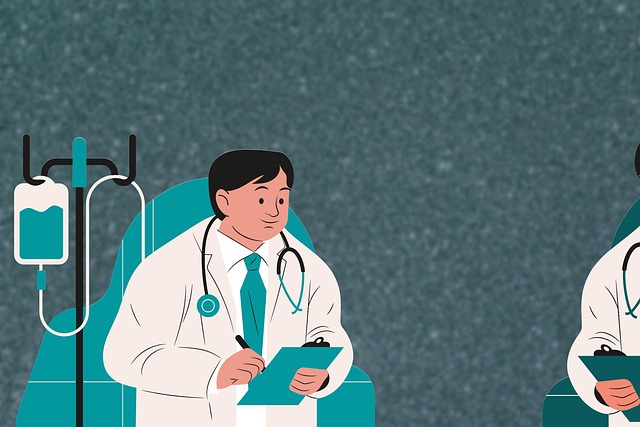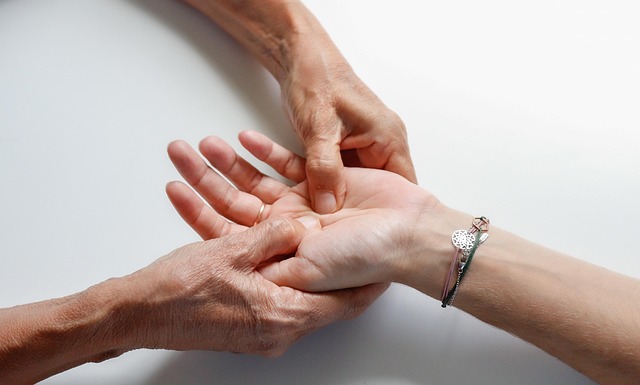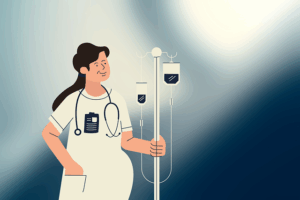Post-Traumatic Stress Disorder (PTSD) is a prevalent mental health challenge among military personnel, often stemming from extreme trauma experienced during service. Effective PTSD treatment for veterans involves specialized counseling, support groups, and access to various therapeutic approaches. Key strategies include Cognitive Behavioral Therapy (CBT), Eye Movement Desensitization and Reprocessing (EMDR), group therapy, family therapy, and building robust support networks. These comprehensive methods aim to help military service members process trauma, manage symptoms, rebuild lives, and find hope after their return to civilian life.
“Post-Traumatic Stress Disorder (PTSD) among military personnel is a pressing issue, often stemming from the unique challenges of their service. This comprehensive guide explores the multifaceted nature of PTSD in the military, its impact on mental health, and the specific symptoms exhibited by veterans. We delve into effective therapeutic approaches, highlighting the success of Cognitive Behavioral Therapy (CBT) and Eye Movement Desensitization and Reprocessing (EMDR). Additionally, we discuss the benefits of group therapy, family integration, and accessing support networks for holistic PTSD treatment.”
Understanding Post-Traumatic Stress Disorder (PTSD) in the Military

Post-Traumatic Stress Disorder (PTSD) is a common yet complex condition often experienced by individuals who have served in the military, having been exposed to extreme and life-threatening situations. It’s a natural response to trauma that can affect a person’s daily functioning and overall well-being. Military personnel may face traumatic events such as combat, accidents, or witnessing the suffering of comrades, which can lead to the development of PTSD symptoms. These symptoms include flashbacks, nightmares, severe anxiety, hypervigilance, and avoidance behaviors, making it challenging for veterans to reintegrate into civilian life.
Recognizing and understanding PTSD is a crucial step in providing effective treatment. Many military members might struggle silently due to stigma or a desire to appear strong. Therefore, promoting awareness and encouraging open conversations about mental health are essential. Access to specialized PTSD treatment, including counseling, therapy, and support groups, plays a vital role in helping veterans manage their symptoms, heal from trauma, and rebuild their lives, ensuring they receive the care they deserve for their service-related challenges.
The Impact of Military Service on Mental Health

Military service, while fostering a sense of camaraderie and strength, can also take a significant toll on an individual’s mental health. The unique challenges faced by those in the military, including extreme stress, trauma, and constant deployment, contribute to a higher risk of developing post-traumatic stress disorder (PTSD). These experiences can lead to profound emotional distress and disrupt one’s ability to cope with everyday life.
The impact extends beyond the individual, affecting families and communities as well. Recognizing these mental health concerns is crucial in providing appropriate support and PTSD treatment. Effective counseling plays a vital role in helping veterans process their traumatic experiences, manage symptoms, and rebuild their lives. It offers a safe space to share stories, process emotions, and develop coping mechanisms, fostering resilience and a sense of hope.
Identifying PTSD Symptoms Unique to Military Personnel

Military personnel often face unique challenges that can lead to post-traumatic stress disorder (PTSD). Identifying PTSD symptoms in this specific population requires a nuanced understanding of their experiences. Common PTSD symptoms, such as flashbacks and nightmares, are more easily recognizable. However, military-specific trauma can manifest differently. For instance, soldiers may experience severe guilt or shame related to their actions during combat, leading to avoidance behaviors or emotional numbing. They might also struggle with reintegrating into civilian life, facing difficulties in adjusting to peaceful environments after experiencing intense warfare.
The nature of military service exposes individuals to extreme stress and traumatic events, which can result in distinct PTSD presentations. Recognizing these unique symptoms is crucial for effective PTSD treatment. Therapists must be adept at assessing and addressing the specific trauma and resulting emotional responses that are inherent to a military background. Tailoring treatments to these needs ensures better outcomes and supports veterans as they navigate their mental health journeys.
Therapeutic Approaches for Effective PTSD Treatment

In addressing Post-Traumatic Stress Disorder (PTSD), various therapeutic approaches have proven effective in aiding military personnel towards recovery. Cognitive Behavioral Therapy (CBT) is a widely recognized method that focuses on identifying and modifying negative thought patterns and behaviors triggered by traumatic memories. By helping individuals process and reframe distressing thoughts, CBT enables them to manage symptoms like nightmares, flashbacks, and avoidance behaviors.
Another powerful tool is Eye Movement Desensitization and Reprocessing (EMDR), which facilitates the resolution of traumatic memories through bilateral stimulation, such as side-to-side eye movements or tactile taps. This approach allows individuals to process and recontextualize traumatic events, reducing their emotional impact. Additionally, Mindfulness-based therapies have gained traction, teaching present-moment awareness and non-judgmental acceptance of thoughts and feelings, thereby fostering resilience against PTSD symptoms.
Cognitive Behavioral Therapy (CBT) and Its Applications

Cognitive Behavioral Therapy (CBT) is a highly effective approach in the arsenal of PTSD treatment. It focuses on identifying and modifying negative thought patterns and behaviors that contribute to the disorder’s symptoms. By challenging unhelpful cognitions, CBT enables individuals to develop healthier coping mechanisms and improve their overall emotional well-being. This form of therapy has shown remarkable results in helping veterans manage flashbacks, nightmares, and avoidance behaviors commonly associated with military PTSD.
CBT sessions often involve exposure therapy, where patients gradually confront traumatic memories or situations in a safe environment. This process helps desensitize individuals to their triggers, reducing the intensity of their responses over time. Combined with other evidence-based practices, CBT offers a comprehensive strategy for those seeking PTSD treatment, fostering resilience and a sense of control.
Eye Movement Desensitization and Reprocessing (EMDR) Therapy: A Game Changer

Eye Movement Desensitization and Reprocessing (EMDR) Therapy has emerged as a game-changer in the field of PTSD treatment, specifically for military service members dealing with post-traumatic stress disorder. This innovative approach goes beyond traditional talk therapy by addressing the unique way that trauma is stored in the brain. EMDR integrates eye movements or other bilateral stimuli with guided memory recall to help individuals process and reframe traumatic memories, reducing their intensity and associated distress.
Compared to conventional psychotherapy, EMDR Therapy has demonstrated remarkable effectiveness in treating PTSD symptoms. By helping veterans reprocess traumatic events, it offers a promising path to healing and improved quality of life. This therapy is designed to be efficient and often produces results more rapidly than other forms of treatment, making it an invaluable resource for those who need support in managing their PTSD.
Group Therapy Sessions for Military Veterans

Group therapy sessions have emerged as a powerful tool in the arsenal of PTSD treatment for military veterans. These therapeutic gatherings offer a unique and supportive environment where veterans can connect with peers who share similar experiences. By participating in group discussions, veterans can process their traumas collectively, fostering a sense of community and understanding. This approach allows them to realize that they are not alone in their struggles, which is immensely comforting during the healing journey.
The dynamic nature of group therapy enables veterans to learn from one another, gaining different perspectives on coping strategies. They can witness how others have successfully navigated their PTSD symptoms, providing valuable insights and inspiration. This interconnection within the group facilitates a sense of belonging and encourages open communication, making it easier for individuals to share their stories and engage in meaningful discussions about their experiences.
Integrating Family Therapy in PTSD Treatment

Integrating family therapy into PTSD treatment is a powerful approach that recognizes the profound impact of trauma on entire families. Military personnel often bring their experiences home, affecting spouses, children, and other loved ones. Family therapy provides a safe space for all members to process these experiences together, fostering understanding and resilience. By addressing intergenerational patterns of trauma and promoting healthy communication, this integrated approach enhances PTSD treatment outcomes.
This holistic strategy allows families to develop coping mechanisms tailored to their unique dynamics, strengthening their bond while navigating the challenges of post-traumatic stress. With specialized therapists guiding the process, family members learn to support one another, creating a supportive network that can significantly improve recovery and overall well-being in PTSD treatment.
Accessing Resources and Support Networks for Effective Healing

Accessing resources and support networks is a pivotal step in effective PTSD treatment for military veterans. Many organizations specialize in providing counseling services tailored to meet the unique needs of service members and veterans dealing with post-traumatic stress disorder (PTSD). These include non-profit groups, veteran affairs departments, and psychological clinics that offer free or low-cost therapy sessions. Online platforms also serve as valuable resources, connecting individuals with therapists who have experience treating PTSD. Support groups led by peers who have experienced similar trauma can provide a safe space for sharing experiences and strategies for coping.
Building a robust support network is integral to the healing process. Friends and family play a crucial role in offering emotional support and encouraging individuals to seek professional help. Community-based programs and local veteran associations facilitate connections with like-minded individuals, fostering a sense of belonging and camaraderie. Additionally, leveraging social media groups and online forums allows veterans to access a broader network of peers who understand the challenges of military service and PTSD, providing a continuous source of support and encouragement throughout the healing journey.
